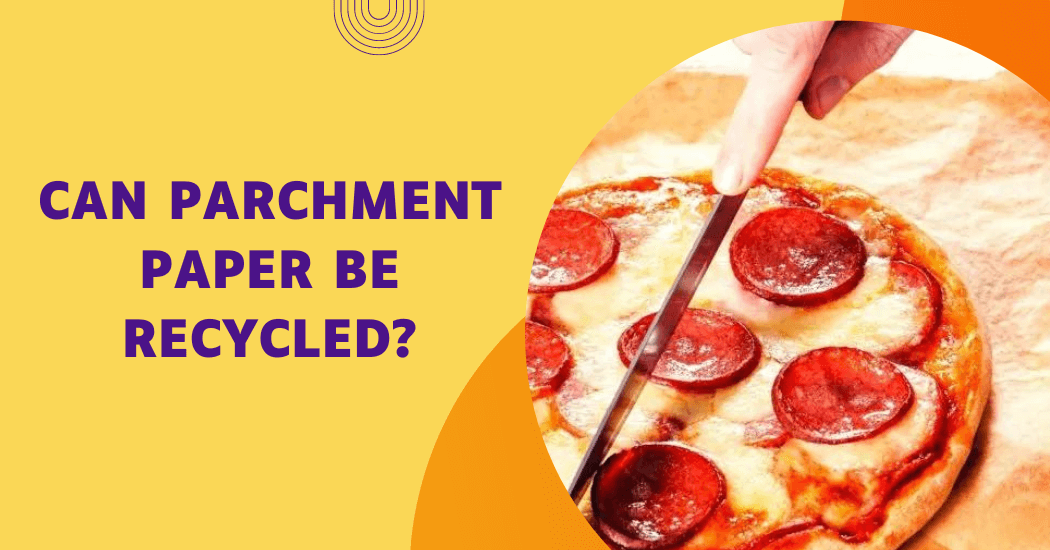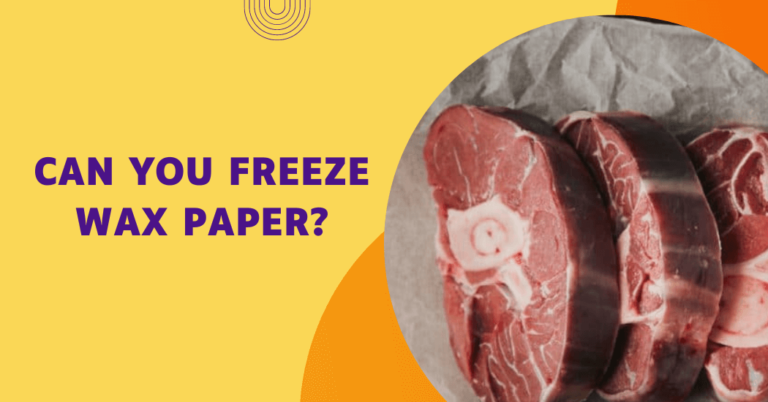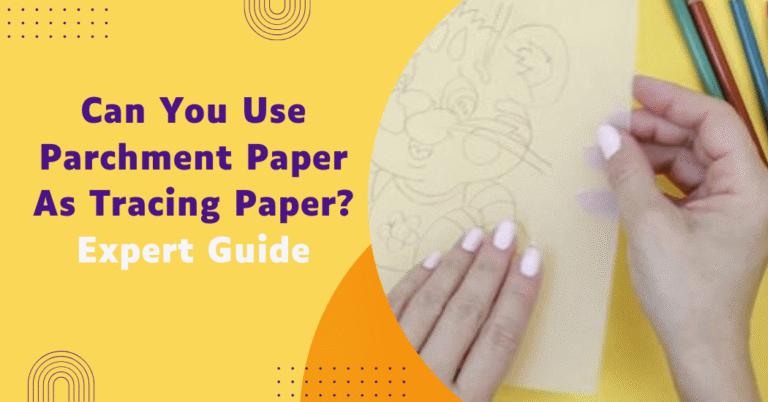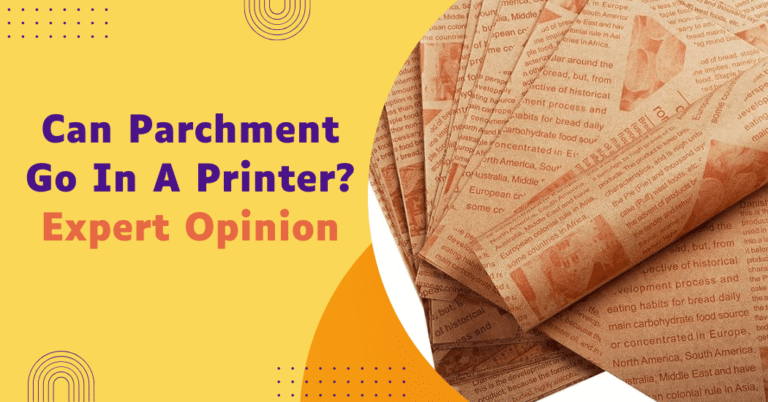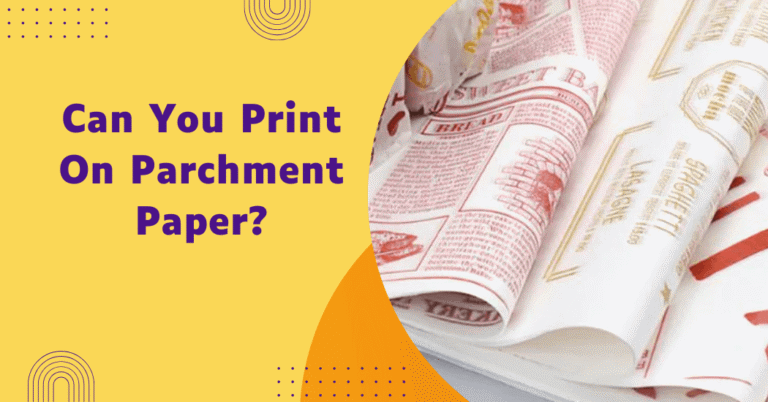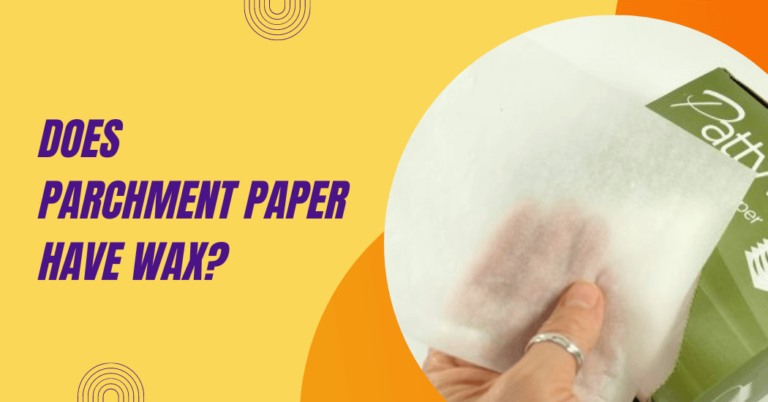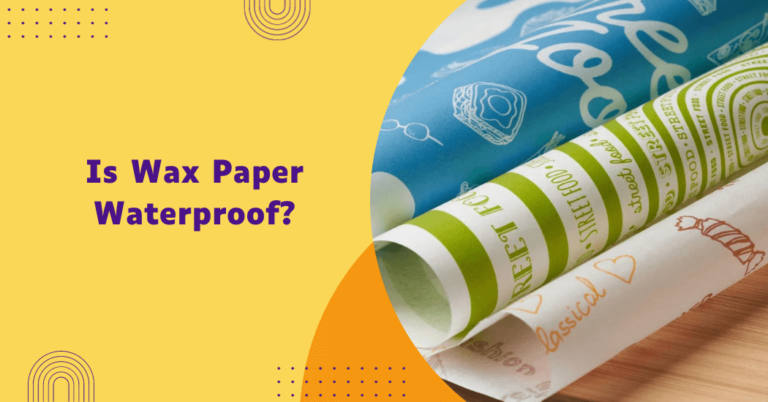Can parchment paper be recycled?
Parchment paper has been around for years and is a versatile kitchen product that can be used in baking, roasting, steaming and more. But with increased concern about the environment comes the question: Can parchment paper be recycled?
And what kind of recycling implications are there to consider if you’re using this handy tool in your home kitchen?
In this blog post, we’ll examine all of the details surrounding parchment paper recycling how feasible it is which types should or shouldn’t go into your curbside bin other methods you can use to reduce waste and much more!
Let’s dig right in to discover everything you need to know about sustainably disposing of parchment paper!
Can parchment paper be recycled?
The short answer is that parchment paper can be recycled depending on the type of paper and if it’s been treated. Unbleached, silicone-free parchment paper is recyclable, so make sure to check out your local recycling regulations before you toss it in the bin.
It’s also important to note that even though some types of parchment paper are suitable for recycling, you should always try to reuse it whenever possible. Reusing it helps reduce the amount of paper that needs to be recycled and also reduces your overall waste.
If you’ve used parchment paper to wrap food or cover a baking sheet, simply wipe off any residue, let it cool down and store it away until its next use. This is an easy way to reduce the amount of parchment paper that ends up in landfills.
Ultimately, parchment paper should be used responsibly and only when necessary. If you do need to use it, make sure to check if it’s recyclable in your area and reuse or recycle it as much as possible. Doing so will help reduce the amount of waste that ends up in landfills!
How to recycle parchment paper?
If you decide to recycle parchment paper there are a few steps you can take to ensure it gets recycled properly.
First, make sure the parchment paper is made of unbleached wood pulp and free of silicone treatments or coatings. Also, cut the parchment paper into small pieces (no larger than 3 inches by 5 inches) and place them in a separate bin or bag from other recyclables.
The most important step to take is to make sure the parchment paper is completely cool and free of any food residue before you recycle it. Paper that has been contaminated by grease, oil or food cannot be recycled so make sure to wipe off any remaining residue with a damp cloth.
Once all these steps have been taken you can place the parchment paper in your curbside recycling bin and rest assured that it will be properly recycled!
Benefits of recycling parchment paper
Recycling parchment paper is a great way to reduce waste and help protect the environment. Here are some of the benefits of recycling parchment paper
- Reduced landfill waste: By recycling parchment paper instead of throwing it in the trash, you can help keep valuable resources out of landfills – including trees and other materials used to make parchment paper.
- Sustainable resource consumption: Recycled materials can be used to make new products, which helps reduce the need for virgin resources.
- Reduced energy use: Manufacturing recycled materials uses less energy than making products from raw materials.
- Greenhouse gas reduction: By recycling parchment paper, you’ll help reduce the amount of greenhouse gases released into the atmosphere.
- Economic benefits: Recycled materials can be used to make new products, which helps reduce production costs and stimulate the economy in many areas.
Recycling parchment paper is a small but important step towards reducing waste and helping create a more sustainable future for us all!
So if you use parchment paper in your home kitchen, make sure to check if it’s recyclable in your area and reclaim all the benefits of recycling. With a little bit of effort, you can make a big difference!
Are you Know: Does Parchment Paper Have Wax?
Alternatives to using parchment paper
If you’re looking for an alternative to parchment paper, there are plenty of options out there! Here are some of the most popular alternatives
- Silicone mats: These non-stick mats can be used over and over again and are great for baking, roasting or steaming. They provide an airtight seal that helps maximize heat circulation and create even cooking results.
- Waxed paper: Custom printed waxed paper is an economical and reusable alternative to parchment paper. It can be used in the oven, microwave or freezer and works great for baking, wrapping food and protecting surfaces!
- Aluminium foil: Foil can be used to line pans and create an airtight seal that helps prevent burning or sticking. It can also be used to wrap food or cover dishes before baking in the oven.
- Reusable baking sheets: Bakeware is a great reusable alternative to parchment paper! Investing in quality bakeware will not only save you money in the long run but it’ll also help reduce your environmental footprint when it comes to cooking and baking.
Environmental impact of parchment paper recycling
The environmental impact of parchment paper recycling is far-reaching and can have many positive benefits. For starters, it reduces deforestation since fewer trees are needed to produce new parchment paper.
This in turn reduces carbon emissions as well as energy and water use since the process of recycling takes less energy than producing new materials.
Not only does parchment paper recycling reduce waste and help protect the environment, but it can also have economic benefits. Recycled materials are often less expensive than producing products from raw materials, so companies may be more likely to use recycled parchment paper instead of virgin resources. This could help create jobs and stimulate economic growth in many areas!
Finally, parchment paper recycling can even help improve public health by reducing air and water pollution. This is because producing new materials requires pollutants to be released into the environment while recycling existing materials does not.
Consumer Role in parchment paper recycling
Consumers play an important role in the parchment paper recycling process. The first step is to be aware of which products are recyclable and make sure they’re properly sorted before being disposed of.
This means checking labels for recycled content, separating parchment paper from other items in the trash and making sure it’s completely free of food residue or grease before being recycled. Doing so will make sure the parchment paper is successfully recycled and isn’t wasted in a landfill.
Another way consumers can help is by purchasing products made from recycled materials whenever possible. This encourages companies to use more recycled resources in their products, which helps reduce waste and conserve natural resources!
Finally, consumers can spread the word about the importance of parchment paper recycling and encourage their friends, family and co-workers to do the same. Educating others about the benefits of recycling can help create a more sustainable future for us all!
Recycling parchment paper is an easy way to make a difference in our environment – so don’t forget to do your part next time you’re baking with parchment paper! Together, we can all help reduce waste and create a better future.
Wrap Up
parchment paper can be recycled if it is put in the correct bin. Though it may not be accepted for recycling by some companies, like Amazon, other businesses and municipalities may have the means to recycle it. If you are unsure whether your parchment paper can be recycled, check with your local facility or service provider.
Keep in mind that while parchment paper is biodegradable, it will take a long time to break down and any effort made on our part to reduce our impact on the environment is still beneficial. It’s also always a good idea to look into composting as an alternative to using parchment paper.
This way nothing goes to waste! Ultimately, protecting the environment by reducing waste should be a priority for all of us – so let’s start by making small changes like considering whether that piece of parchment paper can indeed be recycled.
